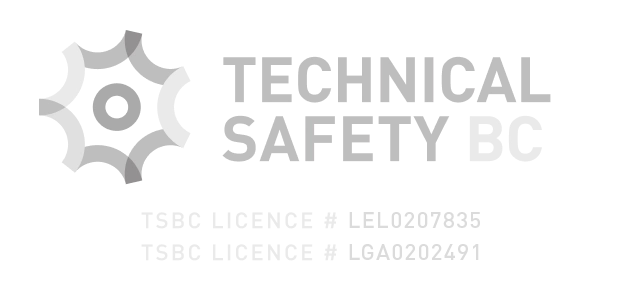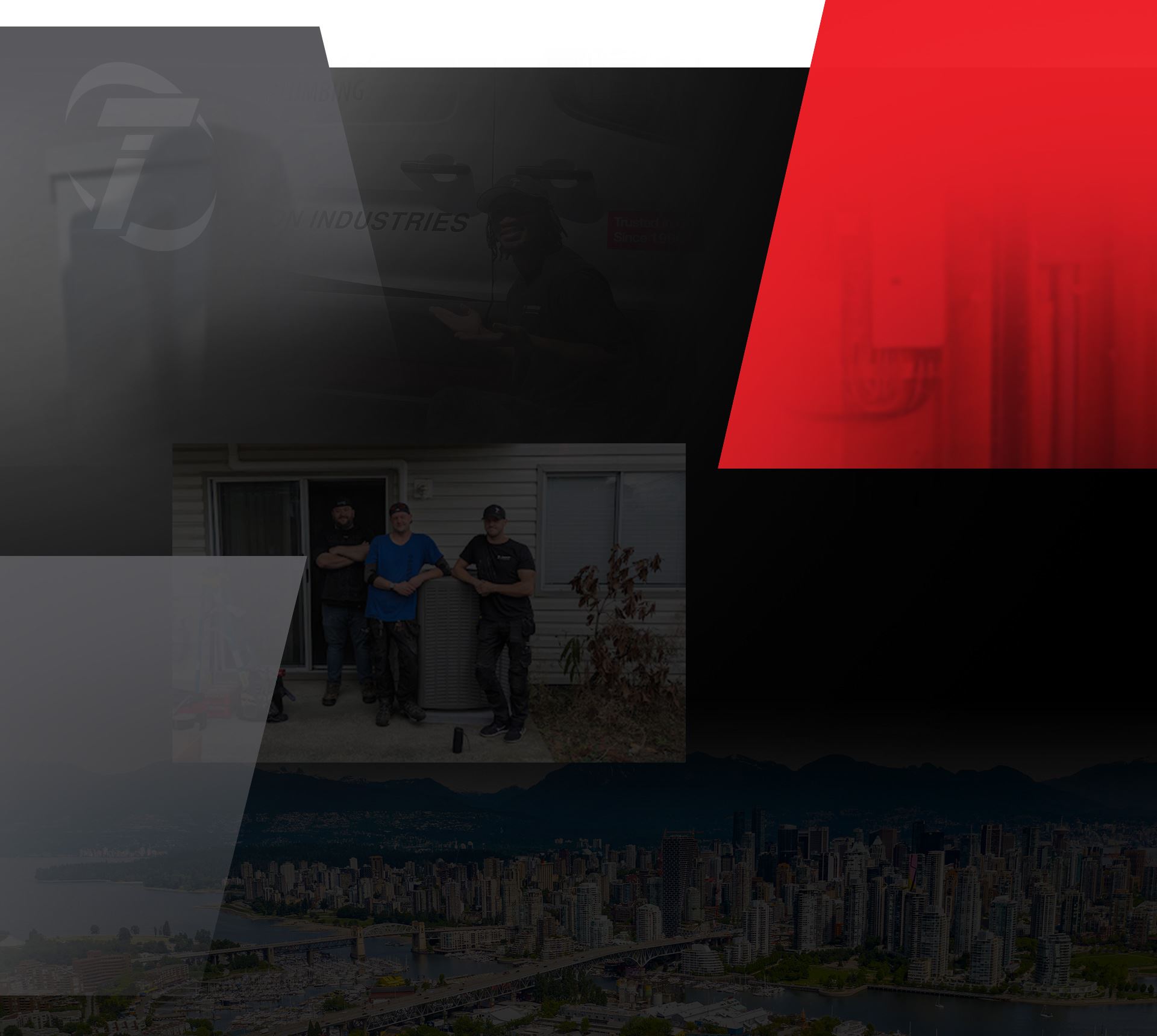IS IT NORMAL TO SMELL GAS NEAR A FURNACE?
Natural gas is an efficient and clean option for heating your home. It leaves very little soot when burned and produces very little air pollution compared to other heating sources. It is also very convenient, with it being delivered through underground pipes to most buildings in developed municipalities.
However, there are some inherent risks to be aware of to keep yourself safe. If you can smell gas, you need to understand these risks and what to do next.
IMPORTANT NOTICE
If you smell gas, you have a potentially dangerous situation on your hands, and it needs to be investigated. If you have a strong smell of rotten eggs or can hear a hissing or roaring coming from anywhere close to your furnace, you may have a major gas leak. The best thing you can do is get everyone out of your home safely.
Do not operate any electrical switches. If you do, it may cause a spark and lead to a fire. Rather, just get everyone out of the building. Then either call 9-1-1 or call your gas utility company. They will give you further instructions on what you need to do.
When you call your gas utility company, the company will send out someone with more experience to investigate the smell and determine if any emergency actions are required. Depending on the problem, it may require them to turn off the gas service to your home.
KNOWING WHEN TO CALL FOR HELP
Not every occurrence of smelling gas is an emergency. However, every gas leak is possibly dangerous, and it should never be ignored. If you answer “yes” to any of these questions, call 9-1-1 or your gas utility.
Can you hear a hissing or roaring anywhere near your furnace? This could indicate a leak in the gas supply line and is extremely dangerous.
Crack a window, then get down next to a vent. Do you smell the gas stronger near the vent?
Is the smell constant, or does it come and go? If you caught a whiff and then have to search for it again, it may be a cycling problem.
Are your CO2 or carbon monoxide detectors going off? This should be a major indicator of a potentially serious problem. You can open some windows, but it is best to leave the premises until you get a professional to identify and fix the problem.
THE HAZARDS OF NATURAL GAS
As long as your gas supply is properly controlled, it is a very safe and efficient heating fuel. However, uncontrolled, this gas can pose several threats to your home and health.
The threat most people consider is the risk of fire or explosion. If you have a gas leak, even a subtle spark from a light switch can ignite a fire. Do everything you can to avoid any sparks. However, fire is not the only risk.
Natural gas can also pose a significant health hazard. Possible symptoms of natural gas poisoning are similar to carbon monoxide poisoning, including nausea, headaches, vomiting, and fatigue. If you experience any of these symptoms and have smelled gas, get outside and seek professional treatment.
Another very significant risk of natural gas is removing the oxygen from the air. Normal air contains about 20% oxygen. Once this drops to 10%-12%, your lips start turning blue, and fainting occurs between 6% and 8% oxygen.
Natural gas has a tendency of pushing oxygen out of an environment, reducing the overall O2 concentration. This can happen relatively quickly and can lead to asphyxiation.
WHY DOES NATURAL GAS SMELL?
Natural gas does is colorless and odorless when it’s first extracted from a mine. However, due to its intrinsic danger, the federal government requires companies to add mercaptan. This is the chemical that gives off the distinctive rotten eggs smell that is so notable for natural gas.
This chemical also helps give you a gauge of the severity of your problem. If you have a significant leak, the smell is going to be strong. With extended exposure, it may give you similar symptoms to natural gas or carbon monoxide poisoning. If the smell is faint or comes and goes, you know you’re probably not dealing with an actual leak but another problem.
WHY WOULD MY FURNACE SMELL LIKE GAS?
Although your furnace runs on natural gas, it should be contained within the unit and not leak out. If you do smell gas, you have a problem, which needs to be rectified quickly. Here are some of the things that may cause the area around your furnace to emit this odor.
One very common cause of the smell is the exhaust from your furnace. Sometimes the wind will cause the exhaust to blow back into an open window or an area that isn’t sealed well. Pay attention to when you notice the smell of gas, and see if it coincides with when the wind is blowing and the furnace is cycling.
Sometimes you may notice a hint of gas when your furnace cycles on. As long as the smell goes away, there is probably not a need for concern. However, you may want to have it looked at just to be sure it is not indicative of a larger problem.
The last cause is a leak in the supply line to your furnace or a faulty regulator allowing gas to leak out. See the previous notice for how to handle this situation.
WILL YOU NEED A NEW FURNACE?
One of the big stressors you may have with your furnace is the concern that you will need a new unit to fix the problem. Like many other furnace issues, there are variables that may require a furnace replacement.
First, consider the age of your unit. Most furnaces have an expected service life of 15-20 years. If your unit is nearing that age, then you may need to look at a replacement to reduce the risk of recurrent leaks in the future.
HOW TO PREVENT GAS LEAKS
You can do a couple of things to reduce the risk of gas leaks within your home. First and foremost, be sure you have operational carbon monoxide detectors near your furnace. As your unit burns the gas, it will produce carbon monoxide. If it goes off, you know there is a problem you need to have looked at and fixed.
Just as important as your carbon monoxide detector is regular maintenance on your furnace. This maintenance is a top-to-bottom inspection of your unit to ensure it’s working properly. Inspecting and testing the gas supply components is only part of the maintenance routine.
Shines Energy provides highly trained furnace repair, maintenance, and installation to the Greater Vancouver Area. Does your air conditioner need attention? Our team also provides expert cooling service, along with ductless mini splits and heat recovery solutions. Call us today to schedule your furnace repair or any other services you need.
Information

Our Guarantees
*Cannot be combined with any other offer

Our Guarantees
No Loopholes™
No Hassles™
Just Right™
We Respect You™
Right Time Certified™
× AccessPro Compliance Mission Statement
WCAG 2.2 Commitment: We strictly adhere to WCAG 2.2 AA guidelines.
Personalized UI: Users with disabilities can personalize the interface.
AI-Based Compliance: We use AI to maintain accessibility during updates.
ARIA Attributes: Meaningful data for screen-readers using ARIA attributes.
Optimized Screen Reader and Keyboard Navigation:
Screen-reader Optimization: ARIA attributes for meaningful data.
Image Description: Auto image descriptions for better understanding.
OCR Technology: Text extraction from images.
Keyboard Navigation: Enhanced keyboard operability.
Content-skip Menus: Easy navigation with shortcuts.
Popup Handling: Improved handling of popups.
Shortcuts: Quick access to key elements with shortcuts.
Specialized Profiles for Disabilities:
Epilepsy Safe Profile: Safe browsing with reduced triggers.
Vision Impaired Profile: Enhanced interface for visual impairments.
Cognitive Disability Profile: Assistive features for cognitive disabilities.
ADHD-Friendly Profile: Minimized distractions for ADHD users.
Blind Users Profile: Compatibility with popular screen-readers.
Keyboard Navigation Profile: Navigate with keyboard commands.
Customizable User Interface Adjustments:
Font Adjustments: Customize font settings for readability.
Colour Adjustments: Choose contrast profiles and color schemes.
Animations Disable animations for user safety.
Content Highlighting: Emphasize key elements.
Audio Muting: Instantly mute the website.
Cognitive Disorders: Linked search engine for better understanding.
Additional Functions: Various customizable options.
Browser and Assistive Technology Support:
Supported Browsers: Google Chrome, Mozilla Firefox, Apple Safari, Opera, Microsoft Edge.
Supported Screen Readers: JAWS (Windows/MAC), NVDA (Windows/MAC).
Continual Accessibility Improvement:
Ongoing Efforts: We continuously enhance accessibility.
Goal: Achieve maximum accessibility with evolving technology.
: Reach out via the website’s contact form for queries or concerns.






